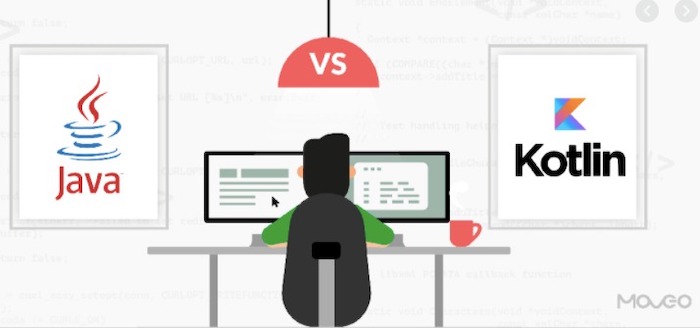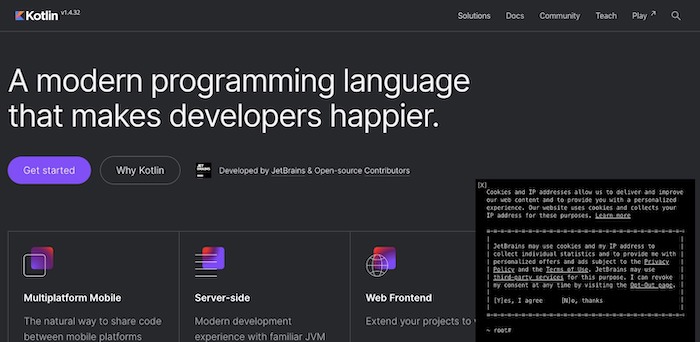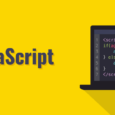When Google announced back in 2017 that Kotlin instead of Java will be their official choice for Android app development, there was a great uproar. Soon the uproar was subsided with more facts and findings of the features and advantages that this new language offers, apart from ensuring total interoperability with Java.

But down the line in more than three years, still, the comparison between Kotlin and Java remains a hot topic on the web and in every nook and corner where mobile app developers hang out. Ask any leading mobile app development company with predominantly Android expertise and portfolio, and you will realize Kotlin experts already dominate their Android teams. But despite this, Java is still a dominant language. So, the comparison and rivalry seem quite obvious.
Here we will introduce these two languages, their respective pros and cons, and differences in features. Let’s start.
Java

Java is the language upon which the Android operating system was built. Java is typically a language that can be used for all kinds of software programs and machines. Java is an object-oriented programming language that supports micro services to allow extending features and capabilities.
Pros
# Java is a language that can work on all platforms, devices, servers, and operating systems.
# Java is highly secure and is full proof of security breaching efforts.
# Java is an object-oriented language and allows great modularity.
# Java can be used instantly for development purposes.
# Java offers extreme ease of use, including coding, compiling, and smooth debugging.
# Java is a leading open-source language that evolved over the years and is now actively used across leading app projects.
Cons
# Java syntax is a bit complicated when compared to C + or Python.
# Java doesn’t offer full compatibility for all types of content across all devices.
# Java coding involves a lot of boilerplate code that adds to the app’s size and risks of finding errors.
# Java is known to have issues with Android API design.
Don’t Miss-
Angular vs. React: How to Make a Right Choice?
Great Tips to Become a Great Java Developer in 2019
Kotlin

Kotlin is a Java-inspired programming language with several key advantages over Java. It is a comparatively lean and simple language with fewer formalities and coding norms compared to Java.
Pros
# Kotlin allows faster compilation and lightweight app development.
# Kotlin code is much smaller in size compared to Java.
# Kotlin allows compiling to bytecode for executing in the JVM. This ensures easy interoperability with Java code.
# Kotlin offering auto-completion help reduces instances of compile-time errors.
# Kotlin offers more security against NullPointerException.
Cons
# Kotlin is relatively a new language and hence is not supported by a huge community.
# Kotlin offers fewer libraries and resources for developers.
# Kotlin comes with a steep learning curve, and the short and concise syntax makes it more difficult for learning.
# There are not too many experts and experienced Kotlin developers in the market now.
Kotlin vs Java: comparing features
Now that we have explained both languages’ pros and cons let’s compare their key features and a few areas present with one and absent with the other.
No Declaration of Exceptions
Kotlin, unlike Java, has no way of declaring exceptions by checking boxes. This Kotlin attribute can help fast pacing development but, on the other hand, can mess with error detection.
Precise and Lead Code
Compared to Java’s code for operating, Kotlin class names use very little code. Kotlin reduces the entire boilerplate code.
Coroutines
For all CPU-intensive work, Java is used to create background threads, but using too many such threads can increase complexity to a great extent.
Kotlin, despite allowing multiple additional threads, uses low memory consuming coroutines. This ensures superior performance for Kotlin apps despite intensive and long-running task load.
Data Classes
For creating a variety of data classes, Java needs the user a lot of boilerplate code. Kotlin, while building such classes it only needs to include data keywords in the class definition so that the compiler takes care of the entire duty.
Extension Functions
Kotlin helps developers add to a class through extension functions. These extension functions are not available in Java.
Null Safety
A major drawback often cited by developers about Java is the NullPointerExceptions. Java allows developers to add a null value with any variable. Following this logic, whenever developers try using an object reference with a null value, we have NullPointerException.
There is no type in complete contrast to Java in Kotlin that can be assigned a null value by default. In case such a null value is given, there will be a failure in compiling.
Conclusion
So, what the future of Java or Kotlin stands for? Is Kotlin going to replace Java completely? Well, In the Android app development, Kotlin has already become popular, and Java is already in the backseat. The official programming language tag from none other than Google gave Kotlin a huge boost.
But unlike Kotlin, Java is not just a language for mobile app development platforms. It represents a complete and robust ecosystem. This is why it is too early to say that it is time to bid adieu to Java. On the other hand, Kotlin is still a new language, and it is likely to take a lot of time to replace Java across all software programs and applications.
Java will continue to be at the forefront of software development for years to come. But thanks to the interoperability of Kotlin with Java, both can be used interchangeably across too many app projects. Over time more and more developers will be familiar with Kotlin while Java remains a viable language. The future seems to signal for a coexistence instead of replacement of one by the other.




